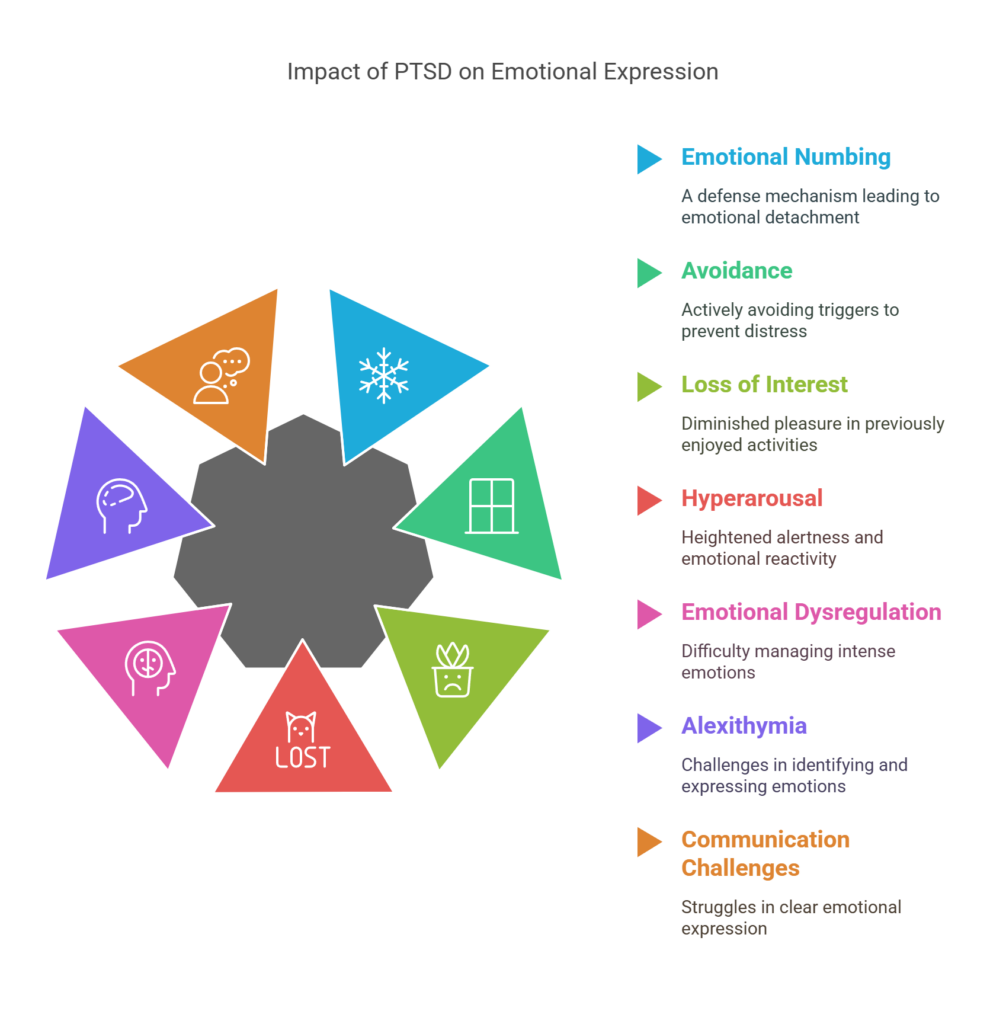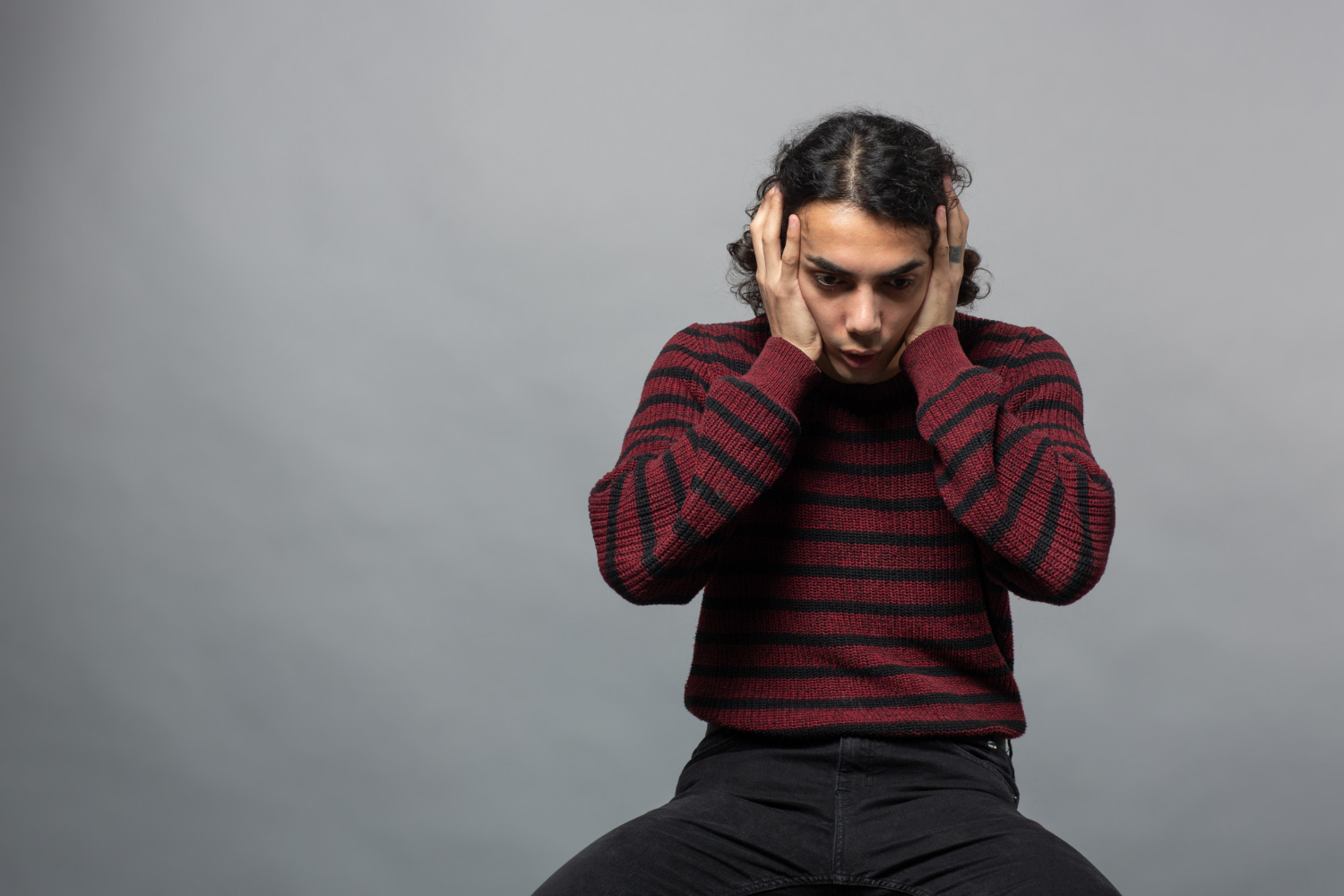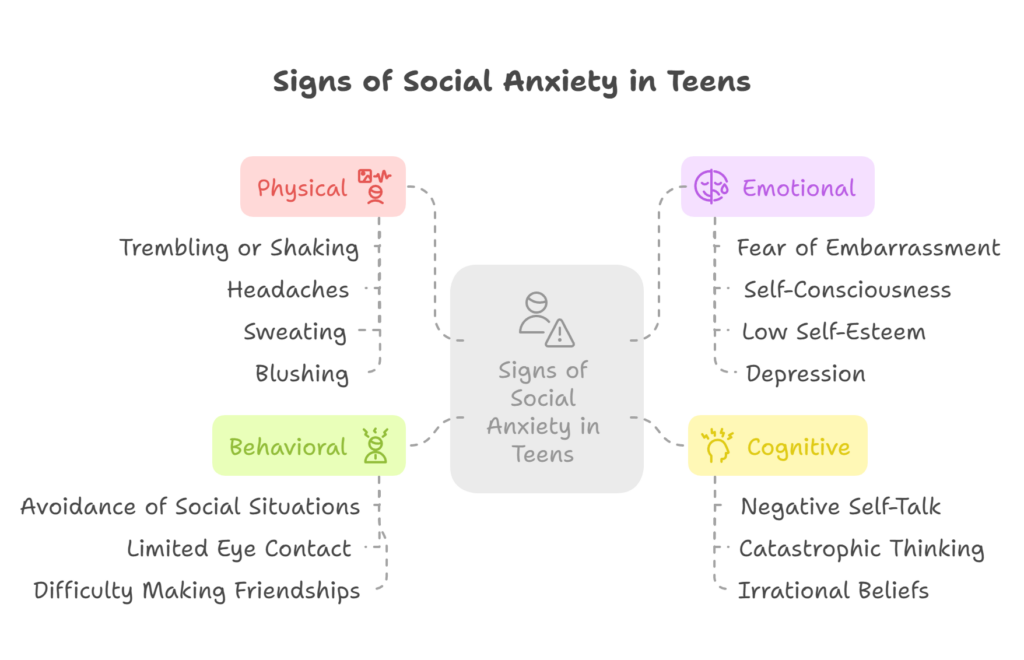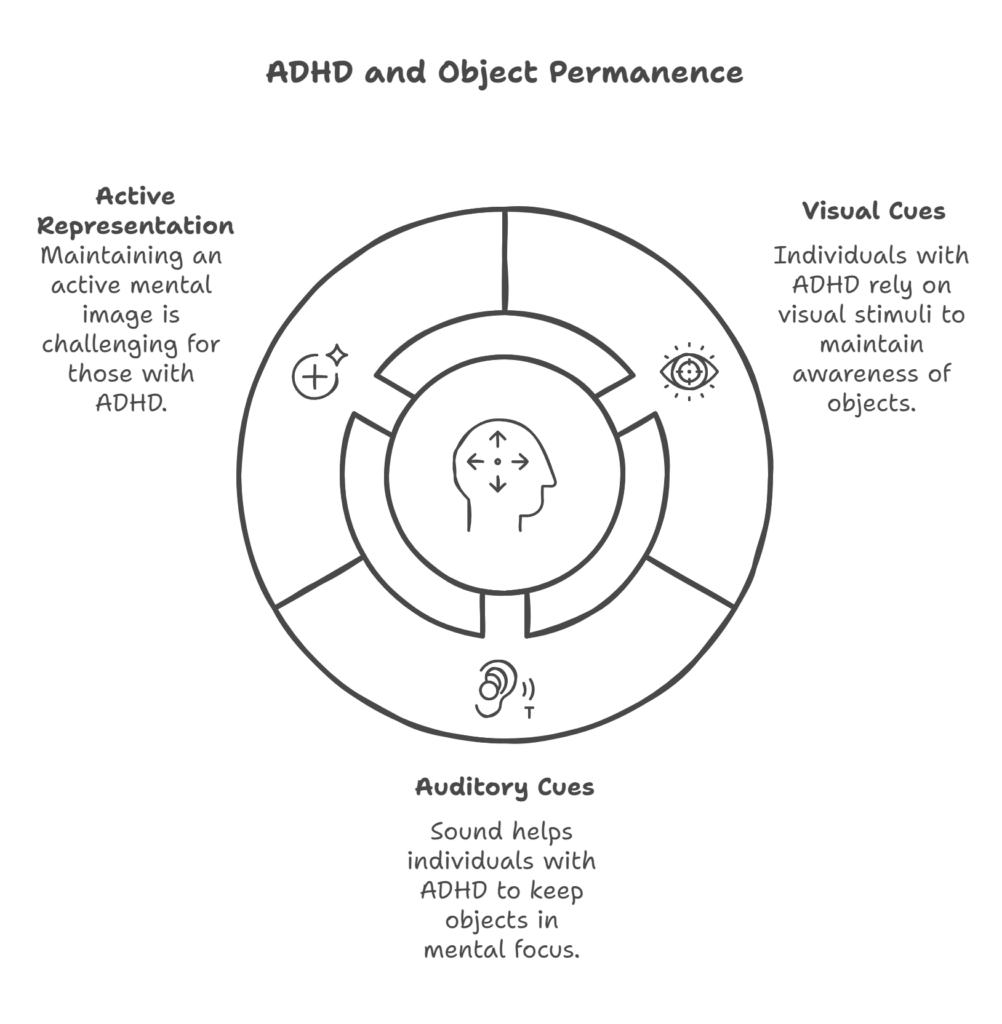Trauma changes everything. Trauma doesn’t just leave scars, it changes the way people feel, think, and react. If you or a loved one is struggling with post-traumatic stress disorder (PTSD), you may notice an overwhelming sense of emotional numbness. They seem distant, detached, or indifferent, even in situations where emotions are expected. But the truth is, they aren’t choosing to be this way. PTSD changes the brain’s ability to process emotions.
At Relevance Recovery, we recognize that many families and individuals ask, “Are people with PTSD emotionally non-expressive?” The answer lies in the way trauma rewires the brain. For many, emotional suppression is a survival mechanism, not a sign of apathy. But emotional numbness doesn’t have to be permanent. With the right treatment, it’s possible to reconnect with emotions, rebuild relationships, and regain control over life.
If you or someone you love is struggling with PTSD, Relevance Recovery is here to help. Our specialized mental health and addiction treatment programs provide expert care to help individuals heal from trauma, break through emotional barriers, and rediscover what it means to feel again.
What is Emotional Numbness in PTSD?
One of the most misunderstood symptoms of PTSD is emotional numbness. People often assume that someone with PTSD doesn’t care, but the reality is much more complex. Trauma forces the brain into survival mode, and one way it copes is by shutting down emotions. Approximately 3.6% of U.S. adults experience PTSD annually, with 36.6% of these cases classified as severe, potentially leading to symptoms like emotional numbness.
Common signs of emotional numbness in PTSD include:
- Flat or Blunted Emotions: They don’t react to good or bad news the way others do.
- Detachment from Loved Ones: Relationships suffer because they struggle to express love, joy, or sadness.
- Loss of Interest in Activities: Even things they once enjoyed no longer bring happiness.
- Difficulty Identifying Feelings: They may struggle to explain how they feel, saying things like, “I don’t know” or “I just feel empty.”
At Relevance Recovery, we help individuals understand that emotional numbness is not their fault. Through therapy and personalized care, we guide them toward healing and emotional reconnection.
Why Are People with PTSD Emotionally Non-Expressive?
If you’ve ever wondered, “Are people with PTSD emotionally non-expressive?” the answer lies in how trauma impacts the brain. Emotional suppression isn’t a choice, well, it’s a reaction to overwhelming distress. Females have a higher prevalence of PTSD (5.2%) compared to males (1.8%), suggesting that emotional numbing may be more commonly observed among women.

Key reasons why PTSD causes emotional numbness:
- Survival Mode: The brain adapts to trauma by suppressing emotions, creating a protective barrier to prevent further pain.
- Hypervigilance and Anxiety: Many with PTSD are in a constant state of alertness. This heightened state of stress makes it difficult to process emotions naturally.
- Dissociation: Trauma can cause dissociation—a mental escape where the brain disconnects from emotions and surroundings.
- Shame and Guilt: Many PTSD sufferers feel unworthy of love or happiness, leading them to suppress emotions rather than experience them.
- Neurological Changes: PTSD alters brain function, reducing activity in areas responsible for emotional regulation.
At Relevance Recovery, we provide evidence-based treatments that help individuals regain emotional expression and break free from PTSD’s grip.
How Emotional Numbness Affects Mental Health
Emotional numbness isn’t just about feeling “nothing.” It has serious consequences on mental and physical health, affecting relationships, work, and overall well-being.
The impact of emotional suppression in PTSD:
- Increased Anxiety & Depression: Bottled-up emotions often lead to deeper mental health struggles.
- Relationship Difficulties: Emotional disconnection can create distance between loved ones, leading to misunderstandings.
- Substance Abuse: Many people turn to drugs or alcohol as a way to either feel something or continue numbing themselves.
- Physical Health Decline: Suppressed emotions can manifest as chronic pain, fatigue, and immune system issues.
The question “Are people with PTSD emotionally non-expressive?” is more than just a curiosity, it’s a concern that affects their quality of life. Relevance Recovery helps individuals regain emotional balance through professional mental health care and personalized support.
How Relevance Recovery Helps People with PTSD
At Relevance Recovery, we specialize in helping individuals regain control over their emotions and heal from PTSD. Our treatment programs address the root causes of emotional numbness and provide the tools needed for recovery.
Our evidence-based PTSD treatment options include:
- Trauma-Focused Therapy: Helps individuals process trauma in a safe, controlled environment.
- Cognitive Behavioral Therapy (CBT): Provides coping strategies to manage emotional numbness and improve emotional expression.
- Eye Movement Desensitization and Reprocessing (EMDR): A scientifically backed therapy that rewires the brain’s response to trauma.
- Medication Management: When necessary, medical professionals provide support for PTSD-related symptoms.
- Mindfulness & Meditation: Techniques like yoga and meditation help reconnect individuals with their emotions.
- Family & Group Therapy: Strengthens relationships and provides a support system for healing.
If you’ve been wondering, “Are people with PTSD emotionally non-expressive?”, it’s important to know that there is hope. At Relevance Recovery, we help individuals move beyond emotional numbness and reclaim their lives.
Overcoming Emotional Numbness: Steps to Healing
Recovery from emotional numbness takes time, but with the right support, healing is possible.
Ways to regain emotional expression:
- Acknowledging the Problem: The first step is recognizing that emotional numbness is a symptom of PTSD, not a personal failure.
- Engaging in Therapy: Working with a professional at Relevance Recovery provides a structured path toward healing.
- Practicing Mindfulness: Techniques like deep breathing and journaling can help reconnect emotions.
- Building Social Connections: Strengthening relationships with trusted loved ones fosters emotional safety.
- Exploring New Activities: Creative outlets like art, music, or physical activities can help reignite emotions.
Healing isn’t just about surviving, it’s about thriving. At Relevance Recovery, we provide the guidance, support, and expert care needed to help individuals break free from PTSD’s emotional grip.
You Deserve to Heal, Relevance Recovery Can Help
If you or a loved one is struggling with PTSD, emotional numbness, or trauma-related mental health challenges, Relevance Recovery is here for you.
You don’t have to live feeling disconnected. You don’t have to struggle alone. With specialized mental health treatment, trauma-focused therapy, and compassionate support, we help individuals rebuild their emotional well-being and rediscover the joy of living.
If you’ve been asking, “Are people with PTSD emotionally non-expressive?”, the real question is: Are you ready to heal? Because the answer is yes, and we are ready to help you take that first step.
Reach out to Relevance Recovery today. Your healing starts here.
FAQs
1. Can PTSD cause inability to express emotions?
Yes, PTSD can cause emotional numbness, making it difficult to express emotions. Trauma alters brain function, suppressing emotional responses as a protective mechanism. Therapy at Relevance Recovery helps individuals reconnect with their emotions and heal effectively.
2. Can trauma make you less expressive?
Absolutely. Trauma triggers emotional suppression as a defense mechanism, making individuals appear detached or unresponsive. This isn’t intentional but a survival response. With professional treatment at Relevance Recovery, individuals can regain emotional expression and improve their mental well-being.
3. What happens when you yell at someone with PTSD?
Yelling can trigger PTSD symptoms, causing panic, dissociation, or emotional shutdown. It can also intensify feelings of fear or distress. At Relevance Recovery, we emphasize trauma-informed care to help individuals build healthy emotional responses and coping mechanisms.
4. Do people with PTSD have a hard time communicating?
Yes, PTSD can impair communication due to emotional numbness, anxiety, or difficulty processing thoughts. This can strain relationships and increase isolation. At Relevance Recovery, therapy helps individuals rebuild communication skills and express themselves more effectively.










